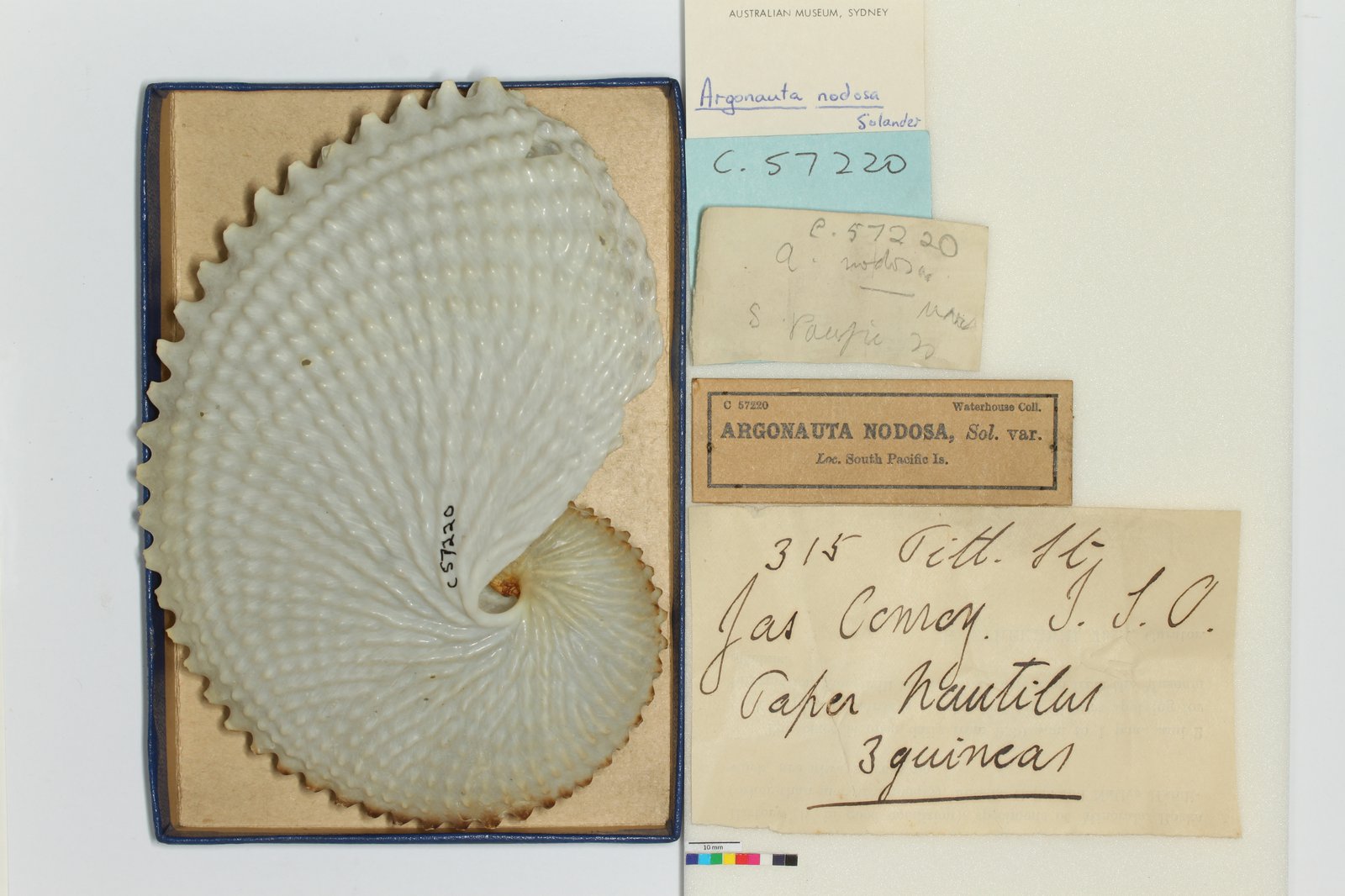DigiVol: Digitising molluscs

© Australian Museum
This year, DigiVol has been digitising the Malacology Collection which is one of the largest Collections in the Australian Museum. Read Dr Mandy Reid's account of her experience with the project.
Dr Mandy Reid, the current Collection Manager of Malacology (molluscs), first worked on polychaetes (marine worms) at the Australian Museum after completing a Bachelor of Science (Biology) at Macquarie University. Her early work at the museum fostered a love of scuba diving and exposed her to the amazing world of marine invertebrates.
This led to a passion for cephalopods (squid, cuttlefish and octopuses) and postgraduate study researching the taxonomy of deep-sea Bottle-tailed Squid. Later, Mandy switched to a completely different group and worked on terrestrial Velvet Worms for her PhD, but returned to her favourite sea creatures with subsequent employment at the Melbourne Museum working again with cephalopods.
She is very happy to be back now at the Australian Museum. Mandy is passionate about anything to do with marine life, which she enjoys professionally and is an interest that she also shares with her family.
What are the benefits of the DigiVol project to Malacology at the Museum?
'Only about one-third of the Malacology Collection has been electronically data based as our resources are limited and it is one of the largest collections in the Museum. This project, with its group of skilled volunteers has helped us to make our collection information more widely available to the public, researchers and our stakeholders.'
'DigiVol has taken a lot of worry from my shoulders because it has been handled so professionally and proficiently, requiring little input from already busy staff. I am really excited about the large number of specimen records that are now being added to our data base.'
What are the challenges you have experienced with the project?
'As the Malacology collection is at different stages of curation (for all sorts of reasons and priority setting that has occurred over our 100+ years of history), some taxonomic groups are proving challenging for staff and volunteers. Getting data into a workable form in our data base is enormously helpful as it will make it so much easier to check and manipulate the data (such as updating taxonomy and so on) at a later stage. We are all learning together.'
Will this project be useful for other Museums?
'Definitely, yes. All museums struggle with staff shortages and limited resources compared to the amount of work that needs to be done in maintaining our valuable collections and making the vast store of information held within them more widely available. Without the benefit of this project the thousands of records that have already been added by our DigiVol volunteer team would still be on our long ‘to do’ list.'

